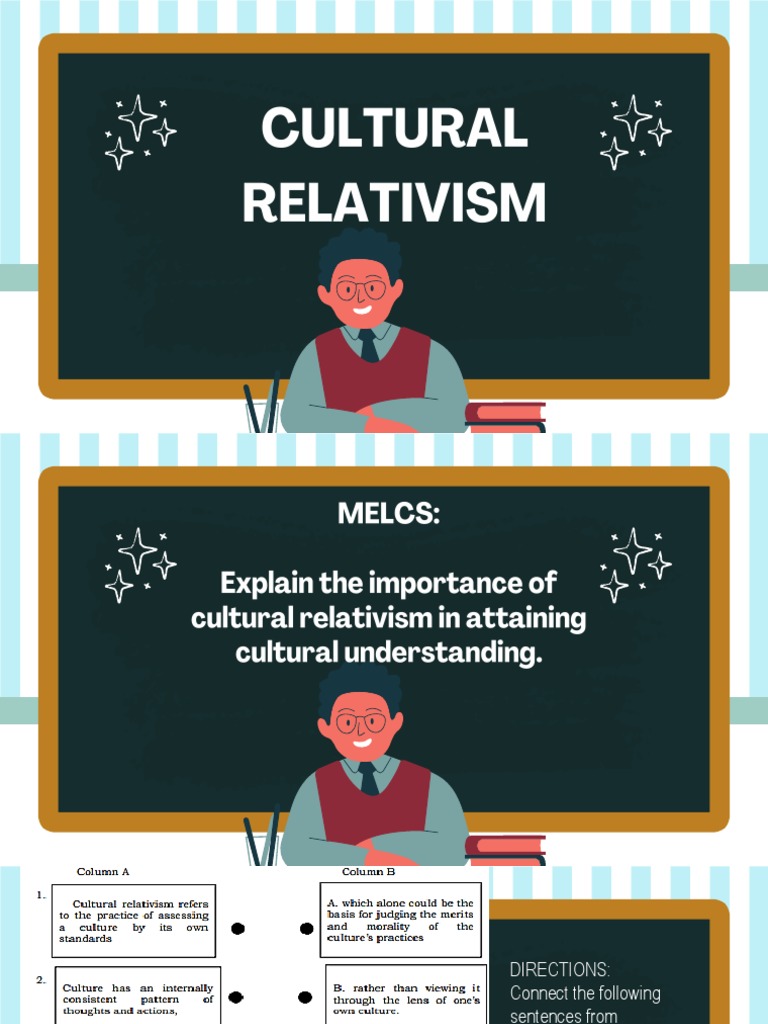Cultural relativism is a complex yet pertinent concept within the socio-cultural landscape of the Philippines, a nation characterized by its rich tapestry of diverse ethnic groups, languages, traditions, and belief systems. At its essence, cultural relativism posits that one’s beliefs and practices should be understood based on their cultural context, rather than being judged against the standards of another culture. This philosophical stance is particularly salient in the Philippines, where a multitude of indigenous cultures coexist alongside the legacies of colonialism and globalization.
To fully appreciate cultural relativism in the Philippines, it is imperative to acknowledge the nation’s historical context. The archipelago has been heavily influenced by foreign powers, including the Spanish, Americans, and Japanese. These external influences have woven themselves into the cultural fabric of the country, giving rise to syncretic practices that can be seen in various aspects of Filipino life. The blending of indigenous beliefs with Catholicism, for example, illustrates how cultural relativism manifests in religious practices. Rituals such as “Simbang Gabi” and the celebration of Santo Niño highlight how Filipinos negotiate their identities amidst varying influences.
One of the most observable aspects of cultural relativism in the Philippines lies in the manner in which indigenous tribes maintain their distinct practices, despite the encroaching tide of modernity. The Igorots of the Cordillera, for instance, continue to practice traditional rice rituals that are intricately linked to their agricultural calendar. Such cultural expressions persist not merely as historical remnants but as active components of their identity. These practices underscore a profound adherence to ancestral traditions that are often at odds with mainstream Philippine culture, bringing to light the complexities of cultural preservation.
Furthermore, cultural relativism offers a lens through which one can examine social issues such as ethnic discrimination and inequality. The Muslim communities in Mindanao have faced systemic marginalization, often leading to social tensions that stem from a failure to appreciate their cultural perspectives and historical grievances. The ongoing peace process highlights the need for a more nuanced understanding of cultural relativism, as stakeholders strive to respect and honor the cultural identity of the Bangsamoro people while navigating the intricacies of national integration.
Encounters between disparate cultures within the Philippines also provide fertile ground for the exploration of cultural relativism. The juxtaposition of Western ideals with Filipino values manifests in numerous domains, notably in popular culture. The rise of social media has facilitated the dissemination of Western trends, challenging traditional norms around relationships, family structures, and gender roles. However, this cultural interchange is not merely a one-way street; Filipinos often reinterpret these Western concepts, embedding them within local contexts. This process of negotiation reflects the dynamic nature of cultural relativism, wherein the infusion of new ideas does not necessitate the abandonment of established traditions.
Education stands as a significant arena where cultural relativism asserts itself. The Philippine educational system, influenced by colonial legacies, faces scrutiny regarding how well it incorporates indigenous narratives and perspectives. Curricula that prioritize Western knowledge often marginalize local histories and epistemologies. Advocating for an educational framework that respects and integrates diverse cultural viewpoints can empower future generations, fostering a society that is cognizant of its multifaceted identity. This reformation would not only benefit indigenous students but would enrich the broader Philippine educational discourse.
Moreover, cultural relativism plays a crucial role in addressing environmental concerns in the Philippines. Indigenous knowledge systems often emphasize harmonious living with nature, offering sustainable practices honed over centuries. These perspectives clash with modern capitalist ideologies that prioritize economic development over ecological preservation. A growing recognition of indigenous approaches to land management presents opportunities for more sustainable policies. By embracing cultural relativism, policymakers might cultivate strategies that align environmental stewardship with cultural significance, thus recognizing the wisdom embedded in traditional practices.
However, the invocation of cultural relativism is not without its criticisms. Detractors argue that it may inadvertently lead to cultural determinism, wherein harmful practices are defended under the guise of cultural preservation. Issues such as gender inequality, human rights abuses, and environmental degradation should prompt critical reflection rather than unquestioned acceptance. The challenge lies in discerning which cultural practices need safeguarding and which require reevaluation in light of universal human rights and ethical considerations.
In conclusion, cultural relativism in the Philippines acts as a kaleidoscope through which one can discern the interplay of historical, social, and environmental factors that influence contemporary life. While it enables a deeper appreciation for the nation’s diverse cultural heritage, it also prompts vital questions about the relevance of traditional practices in the face of modernization and globalization. Navigating the balance between cultural preservation and social progress remains a delicate endeavor, requiring an ongoing dialogue that respects diversity while fostering collective advancement. The Philippine experience serves as an illuminating case study of how cultural relativism shapes identities, informs social dynamics, and presents challenges and opportunities in the quest for an inclusive, equitable society.
